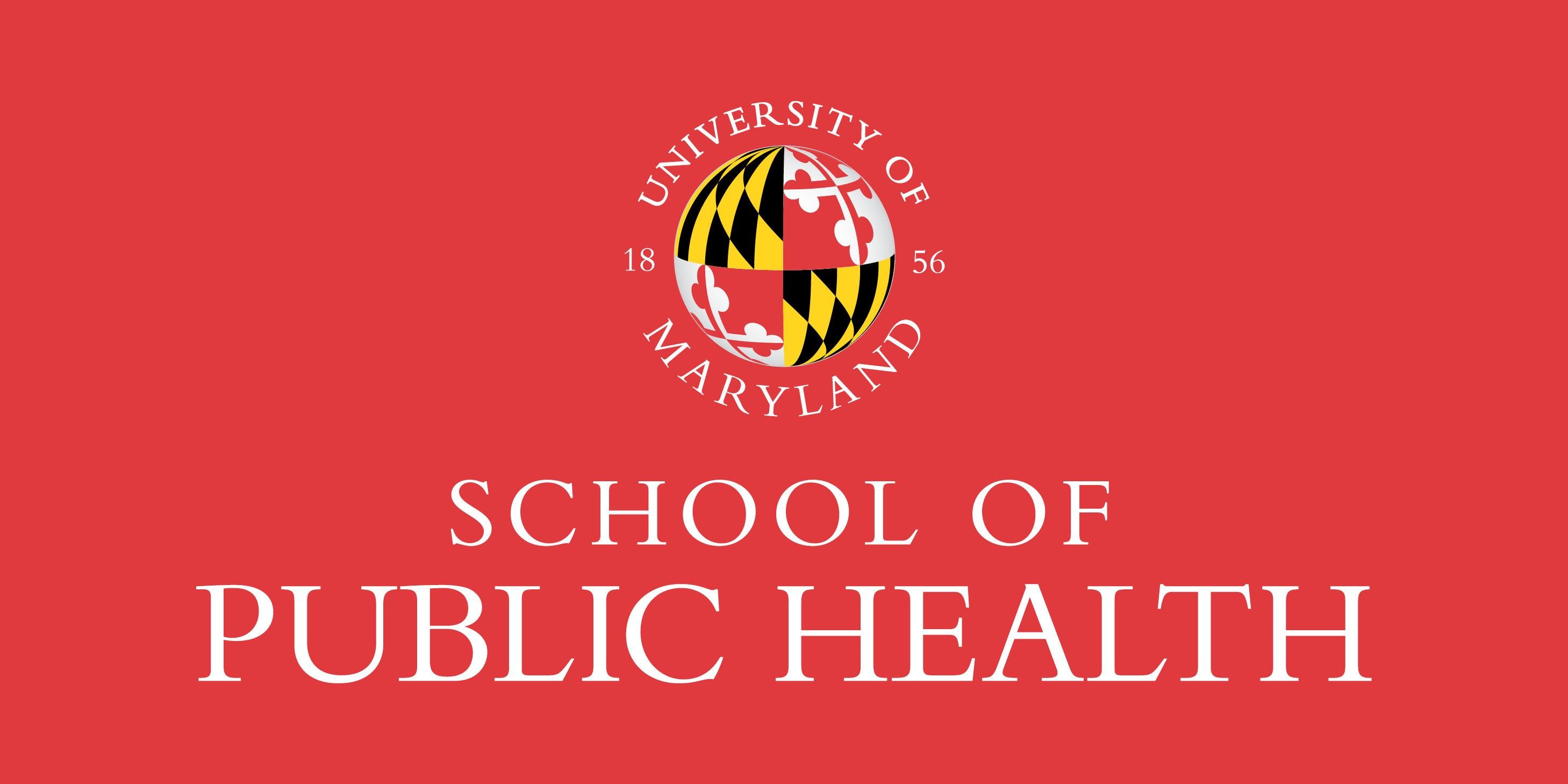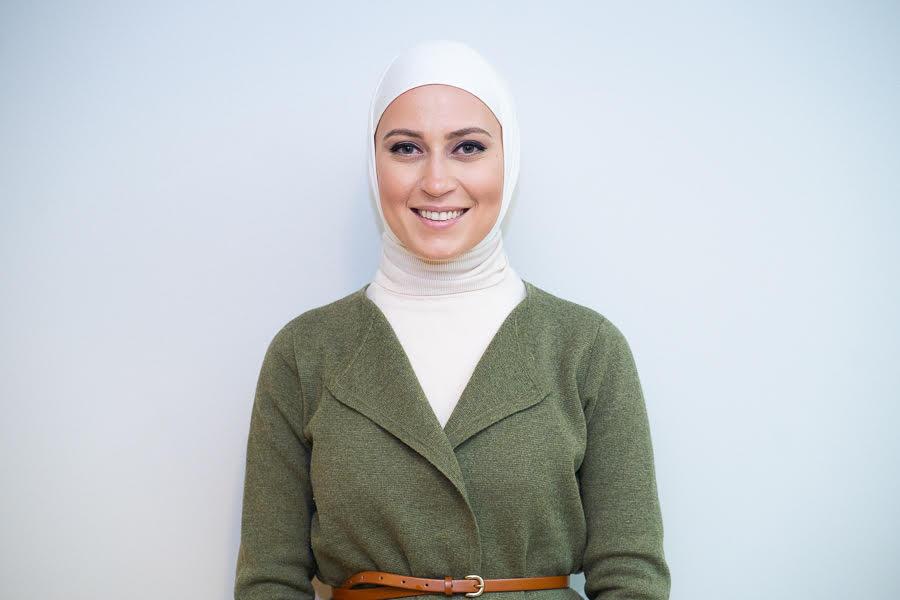

Zeina Mohamad Alkhalaf
PhD, Maternal and Child Health
Zeina Mohamad Alkhalaf didn’t plan to go into public health, at least not at first. She received a degree in communications and public relations and conducted humanitarian work through a non-profit. But at the age of 23, Zeina was diagnosed with polycystic ovary syndrome (PCOS), a hormonal disorder that affects around 200,000 individuals in the US every year and can lead to infertility, diabetes and even cancer.
Instead of allowing the diagnosis to defeat her, Zeina spent several years combing through research into possible causes and treatments for PCOS. When she found evidence of a link between the chemicals in everyday household items and a diagnosis of PCOS, Zeina purged her home of as many chemicals as possible. She began eating organic food, replaced plastic with glass or silicone and switched to makeup products with natural ingredients.
One symptom of PCOS is irregular or prolonged menstrual periods, which can make it difficult to become pregnant. But after cutting out chemicals, Zeina noticed her cycles become more regular.
“I thought, ‘okay, there’s something to this,’” said Zeina. “Cutting out chemicals did have an effect on my overall health.”
Her experience inspired Zeina to conduct her own research. She received an MPH at George Mason University and completed a fellowship with the National Institute of Child Health and Human Development, where she assisted with studies and publications.
With the ultimate goal of returning to Kuwait, her home country, to conduct research and to spread public health information to local communities, Zeina enrolled in a PhD program at the University of Maryland School of Public Health. Zeina is currently studying maternal and child health in the Department of Family Science.
Recently, Zeina’s research was the subject of an NBC News Special Project called “Behind the Label.” In the project, she shared her experiences with PCOS, infertility and pregnancy in the hope of equipping other individuals with information about living with PCOS and possible treatments.
In one sentence, what is public health to you?
For me, public health is not just conducting studies but also being able to disseminate information to the public. So it stands for ensuring the best health of the public through research and dissemination of knowledge to the public.
You can conduct as many studies as you want. but if people don’t know what’s really going on you’re not truly fulfilling the job of public health. It’s not just about health promotion, it’s finding ways to accurately and properly disseminate information that’s digestible to the public to be able to stand up for their health. That’s the most important thing.
That’s part of why I really appreciated NBC doing a special report on chemicals in makeup. And it’s not just makeup! Chemicals are in everyday household items, so in the report, I also share some safer products I use for things like laundry detergent or shampoo.
What inspired you to study public health?
My struggle with polycystic ovary syndrome was the experience that led me to fall in love with public health. I was in the communications field prior to this and did humanitarian work, but I was really shocked by my experience and decided to switch my field to public health.
One of the main reasons I chose Maryland and a PhD program is I felt that a lot of the research work that is being done is not properly disseminated to the public. I was so shocked when I was reading the available research on PCOS and what could increase your risk of getting PCOS because none of my doctors told me, none of it was explained to me, and I never found it on a regular website. I had to teach myself how to read the research papers and realized that if I want to help spread the knowledge - which is what led me to also start my blog, Confessions of an Organic Mama - I need to have a very strong background, which means I need a degree.
What do you think is the biggest challenge that the public health field should be focusing on?
I think one of the biggest problems in public health right now is not being able to find innovative ways to share information with the public. There will always be new and pending issues. The challenges will be ever-changing. So the biggest and most vital issue we have to deal with first is out to accurately and innovatively disseminate information to the public. This will ensure our research is going to the greatest good, empowering individuals by increasing overall knowledge on how you can better your health, no matter the issue.
How has your time at UMD’s School of Public Health shaped your career goals?
After I‘m finished, I plan on going back to the Middle East with my husband. There’s not enough research being done on exposures for women, men and children. There’s not enough population health-based research. So I thought, ‘okay, I need to step up and do this myself.’
My experiences just within the last few months at SPH have really helped shape how I plan on conducting when my studies when I go to Kuwait and what I want to do there. It’s been really vital to my growth as a researcher, gaining knowledge of how to conduct studies, do research and analyze the results so I can help the population.
What person or experience had the greatest impact on you during your degree?
This is my first semester in my PhD program, but already I’ve gotten so much guidance on how I want to conduct studies when I go back to Kuwait. I have a great support system around me. I work with Marie Thoma and she focuses on infertility. As her research assistant, I’ve gotten more knowledge and experience through working on studies she conducts. I’ll also be helping her work on a grant which I think is an important skill for the future.
I’m also currently working with Edmond Shenassa looking at exposures during breastfeeding and how that impacts the health of children, which I find really, really fascinating. We’re in the process of doing the research into exposures, specifically nicotine and caffeine and its potential effects on a child’s growth.